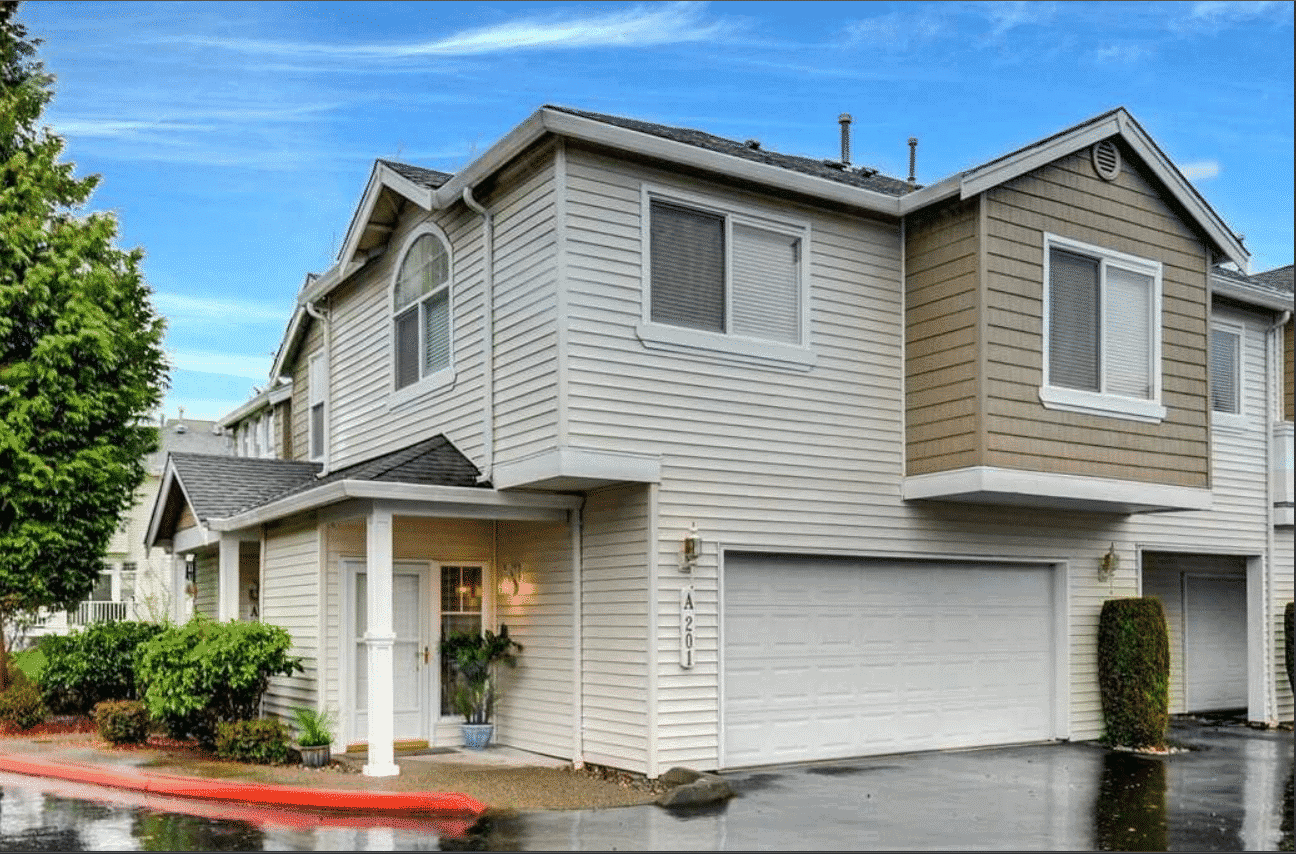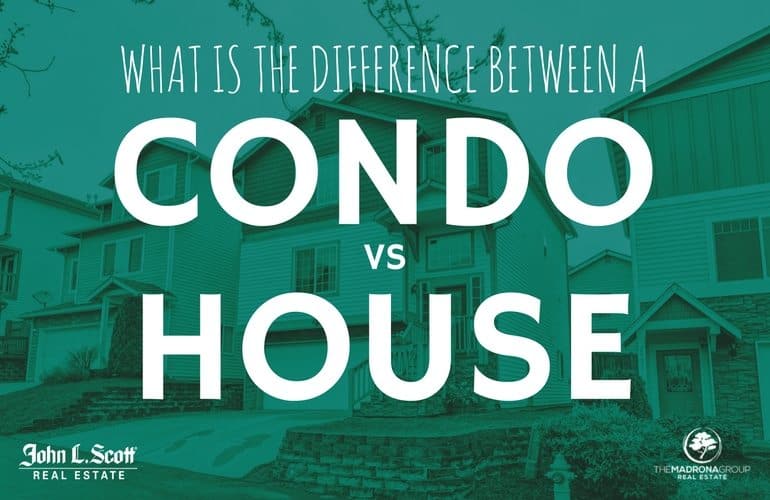What’s the Real Difference Between a Condo vs House? (Hint: It’s Not the Yard)
A lot of folks think the big difference between a condo and a house comes down to whether there’s a yard — but that’s not quite it.
Sure, most of us can spot the classic attached condo — it usually looks like an apartment building with stacked units. But things get trickier when you run into a detached condo that has a front yard, backyard, and even a white picket fence. Looks like a house... but legally? It’s not.
That’s why we’re digging into the real nuts and bolts of what separates a condo from a single-family home — not just in appearance, but in how ownership, responsibilities, and even financing work.
“A detached condo might look like a house from the curb — but the title tells a different story.”
Now before we get too far, just a quick note — I’m not a real estate attorney. I’ll break it down in simple terms, but when in doubt, always double-check the legal description on the title.
What to Expect in This Post
- Video breakdown of Condo vs House
- What is a Condo?
- King & Snohomish County market snapshot (2025)
- Types of Condos — Attached, Townhouse, and Detached
- Why some homes that look like houses are legally condos
- HOA basics
- Difference between a detached condo and a single-family home
- Pros and cons of buying a condo vs a house
- When it makes more sense to buy a condo (and when it doesn’t)
- A practical checklist to help you decide what’s best for your situation
Prefer to watch? VIDEO VERSION OF CONDO VS HOUSE
WHAT IS A CONDO?

The first thing to understand is that a condo isn’t about how the property looks — it’s about how it’s legally owned.
When you buy a condo, you’re purchasing:
- The interior of your unit (the walls, ceilings, floors, and everything inside them)
- A shared interest in the common areas, such as the roof, siding, landscaping, parking lots, and any amenities like pools or gyms
That’s why a condo can take many shapes — an apartment-style unit, a row of townhomes, or even a detached house with a yard. The key difference is in the legal description on the title.
A Quick History
The modern condo first appeared in Salt Lake City in 1960. By the 1960s and 70s, Florida developers were selling individual ownership in multi-unit buildings to retirees looking for affordable, low-maintenance housing. The model quickly caught on nationwide.
THE LEGAL DEFINITION
'Condominium' refers to real property developments in which the property can be divided by lines on the ground like traditional real estate, but can also be divided with horizontal planes, like the floors of a building. The individual owners also each own an undivided (collective) interest in the common areas (i.e. offices, lobbies, elevators, hallways, parking garages, pools, etc.)Condolaw.net
In Washington State:
- Condos created after July 1, 1990 are governed by the Washington Condominium Act (RCW 64.34)
- Condos created before July 1, 1990 fall under the older Horizontal Property Regimes Act (RCW 64.32)
Generally, condo boundaries stop at the finished surfaces of your walls, floors, and ceilings (like paint, carpet, or tile). Everything behind or outside those surfaces — framing, exterior walls, roofs, and land — is considered a common element, shared among all condo owners.
Bottom line: Buying a condo means owning the space inside your unit plus a collective share of everything outside.
King and Snohomish County Market Snapshot (September 2025)
Here’s how the two counties compare in home values as of September 2025:
King County
- Typical Home Value: ~$852,000
- Median Sale Price: ~$885,000
- King County continues to hold some of the highest prices in the state.
Snohomish County
- Average Single-Family Home Price: $884,361
- Average Condo Price: $543,501
- Overall Median Sale Price: ~$760,000
- Snohomish shows a significant gap between houses and condos, giving buyers more affordable entry points through condos.
(Source: NWMLS / The Madrona Group Snohomish County, The Madrona Group King County, September 2025)
This price difference is one of the main reasons many buyers weigh the choice between a condo and a house. While condos often come with HOA dues, they also tend to have lower property taxes and upfront costs compared to a house.
TYPES OF CONDO
Not all condos look the same. In fact, the style of the building often leads to confusion — is it an apartment, a townhome, or a house? Legally, they may all be condos. Here are the three main types you’ll come across in Snohomish County:
Attached Condo
This is what most people picture when they hear the word “condo.” It’s a multi-unit building, often stacked like apartments, where each unit shares at least one wall with a neighbor.
In this form of ownership, you’re responsible for everything inside your unit (walls, floor, ceiling, fixtures), while the exterior walls and common areas are owned and maintained collectively by the association.
Townhome-Style Condo
Townhomes are similar to attached condos, but instead of being stacked on top of each other, the units are side by side. Each one shares a sidewall, but they extend from the foundation up to the roof.
Here’s how Snohomish County defines a townhouse:
“Dwelling, Townhouse” (“Townhouse”) means a single-family dwelling unit constructed in a group of three or more attached units in which each unit extends from the foundation to roof and has open space on at least two sides. The term includes a townhouse constructed as a zero lot line development and townhouse on single lot.
Detached Condo
A detached condo looks almost identical to a single-family house. The difference comes down to the legal classification and the HOA. Generally, owners of detached condos are responsible for maintaining everything within the boundaries of their lot, but the property is still part of a condo community.
Bottom line: Whether it’s attached, townhome-style, or detached, what makes a property a condo isn’t the way it looks — it’s how it’s legally owned and managed.
HOA (Homeowners Association)
Every condo community comes with a Homeowners Association (HOA). When you buy a condo, you’re not just buying your unit — you’re also buying into the HOA, which manages the common areas, amenities, and shared utilities.
Most HOAs are set up as corporations, and they operate under a set of rules called CC&Rs (Covenants, Conditions, and Restrictions). The goal of the CC&Rs is to protect the community’s overall value and appearance. That might mean requiring lawns to be mowed, limiting the colors you can paint exteriors, or setting rules for pets, rentals, and even holiday decorations.
What the HOA Covers
The HOA is responsible for maintaining the community’s shared spaces and big-ticket items, such as:
- Roofs and siding
- Exterior painting
- Landscaping in common areas
- Driveways and parking lots
- Insurance on shared structures
- Trash and sometimes water, sewer, or other utilities
How It’s Paid For
To cover these expenses, each owner pays monthly dues. In Snohomish County, those dues typically range from $30 to $1,000 per month, depending on the size of the development and the amenities offered.
A well-managed HOA should also keep a reserve fund — basically a savings account for unexpected expenses or major future repairs. Without it, owners may be hit with special assessments (extra fees) when big projects come up.
Bottom line: An HOA can save you time and hassle by handling maintenance and upkeep, but it also means following community rules and budgeting for monthly dues.
Difference between Detached Condo vs Home
You’re browsing online and find a listing with a yard, a fence, and plenty of space. Looks just like a single-family home. But then you notice it’s listed as a condo.
Why?
The difference usually comes down to lot size requirements and developer choice. Many cities have strict minimum lot sizes for single-family homes. If a builder wants to fit more units on the land than zoning allows, they may set them up as condos instead.
For the builder, this means more profit since they can sell more homes in the same space. For you, the buyer, it often means you can get a house-style property — sometimes even with a yard — for a lower price than a traditional single-family home.
What It Means for You
- Appearance vs. Legal Structure: A detached condo looks like a house but is legally classified as a condo.
- Maintenance: In many detached condo communities, the owner is responsible for everything inside their lot lines (roof, siding, yard). That gives it the feel of a house, while still being part of a condo association.
- HOA Dues: Detached condos often have lower HOA dues than attached condos or townhomes, since there are fewer shared areas to maintain.
- Affordability: Buyers are often willing to pay more for detached condos compared to attached ones, but they still usually cost less than a true single-family house.
Bottom line: The main difference between a detached condo and a house isn’t how it looks — it’s how it’s classified legally. A detached condo gives you many of the perks of a house (privacy, a yard, more space) with the potential cost savings of condo ownership.
Condo vs House pros and cons
When it comes down to choosing between a condo and a house, there’s no one-size-fits-all answer. Each option has its strengths and trade-offs. Here’s a breakdown to help you weigh the decision.
Pros of Buying a Condo
- Lower purchase price compared to single-family homes
- HOA often covers big-ticket items (roof, siding, exterior paint, landscaping)
- Less personal responsibility for maintenance and yard work
- Shared amenities like gyms, pools, or clubhouses (depending on the community)
- Lower property taxes than a comparable house
- Good option for first-time buyers, downsizers, or anyone wanting low-maintenance living
Cons of Buying a Condo
- Monthly HOA dues (and the possibility of special assessments)
- Less privacy — shared walls, floors, or close lot lines
- Rules and restrictions from the HOA (pets, rentals, exterior changes, etc.)
- Financing can be trickier if the HOA has issues (low reserves, lawsuits, high rental ratios)
- Historically slower appreciation and weaker resale value than single-family homes
Pros of Buying a House
- More privacy, space, and independence from neighbors
- Full control over the property — remodel, paint, or landscape how you want
- No HOA rules in most cases (though some neighborhoods still have them)
- Typically stronger resale value and long-term appreciation
- More land ownership, which adds lasting value
Cons of Buying a House
- Higher purchase price compared to condos
- All maintenance and repairs are your responsibility (roof, siding, landscaping, etc.)
- Higher property taxes
- More time, effort, and money required for upkeep
Bottom line: If you value affordability and convenience, a condo may fit your lifestyle. If privacy, control, and long-term investment matter more, a house is often the better choice.
When It Makes More Sense to Buy a Condo (and When It Doesn’t)
A condo or a house isn’t “better” — it’s about which one fits your lifestyle, budget, and long-term goals. Here are some scenarios where one may make more sense than the other.
A Condo Might Be the Better Fit If:
- You’d rather not spend weekends mowing lawns or fixing gutters
- You like the idea of shared amenities like gyms, pools, or common spaces
- You want a lower purchase price and lower property taxes
- You’re a first-time buyer, downsizer, or someone looking for a lock-and-leave lifestyle
- You prefer living in walkable, central locations where single-family homes are out of reach
A House Might Be the Better Fit If:
- Privacy and space are high on your list of priorities
- You want control over your property — from paint color to landscaping
- You’re looking for long-term appreciation and stronger resale value
- You don’t mind (or even enjoy) yard work and home projects
- You want room to expand, remodel, or customize over time
A Practical Checklist to Help You Decide
Use this quick checklist when comparing properties to see which option lines up with your priorities:
- Total Monthly Cost
- Add up mortgage, taxes, insurance, utilities, and HOA dues (if any).
- Maintenance Responsibility
- Do you want to handle repairs and yard work, or would you prefer the HOA take care of it?
- Privacy & Space
- Are you comfortable sharing walls or being close to neighbors, or do you want more separation?
- Rules & Restrictions
- Review HOA CC&Rs if it’s a condo. Are you okay with restrictions on pets, rentals, or exterior changes?
- Risk Factors
- For condos: check HOA financials, reserve fund, and litigation history.
- For houses: budget for big-ticket repairs (roof, siding, HVAC).
- Lifestyle Fit
- Do you value convenience and amenities, or independence and freedom?
- Resale Goals
- Are you planning to stay long-term, or do you need strong resale potential in the near future?
If most of your answers line up with convenience, affordability, and low-maintenance living, a condo might be right for you. If you’re leaning toward space, privacy, and flexibility, a house could be the better choice.
SUMMARY of CONDO VS HOUSE
The purpose of this article is to help clarify the difference between condos and houses — especially detached condos that can look almost identical to single-family homes.
It’s not always easy to tell whether a property is a townhome, condo, or single-family house. The surest way is to check the category on a listing site, ask your real estate agent, or review the legal description on the title.
At the end of the day, the main difference between a detached condo and a house comes down to legal classification. Developers sometimes label a property as a condo so they can fit more units on the land, but that doesn’t necessarily change how it looks or lives.
When deciding what’s right for you, consider these key factors: Price, Maintenance and Upkeep, Privacy, Risk, and Resale Value. Our practical checklist above can also help you line up those priorities with your lifestyle and long-term goals.
If you’d like more information about the difference between condominiums and single-family houses — or you want to compare available properties — reach out to Joe or Jason today.
👉 See available condos for sale in King and Snohomish County »
And just a reminder — while I’ve done my best to explain the differences here, I am not a real estate attorney. Always consult an attorney before making any legal decisions.
Share this post!




